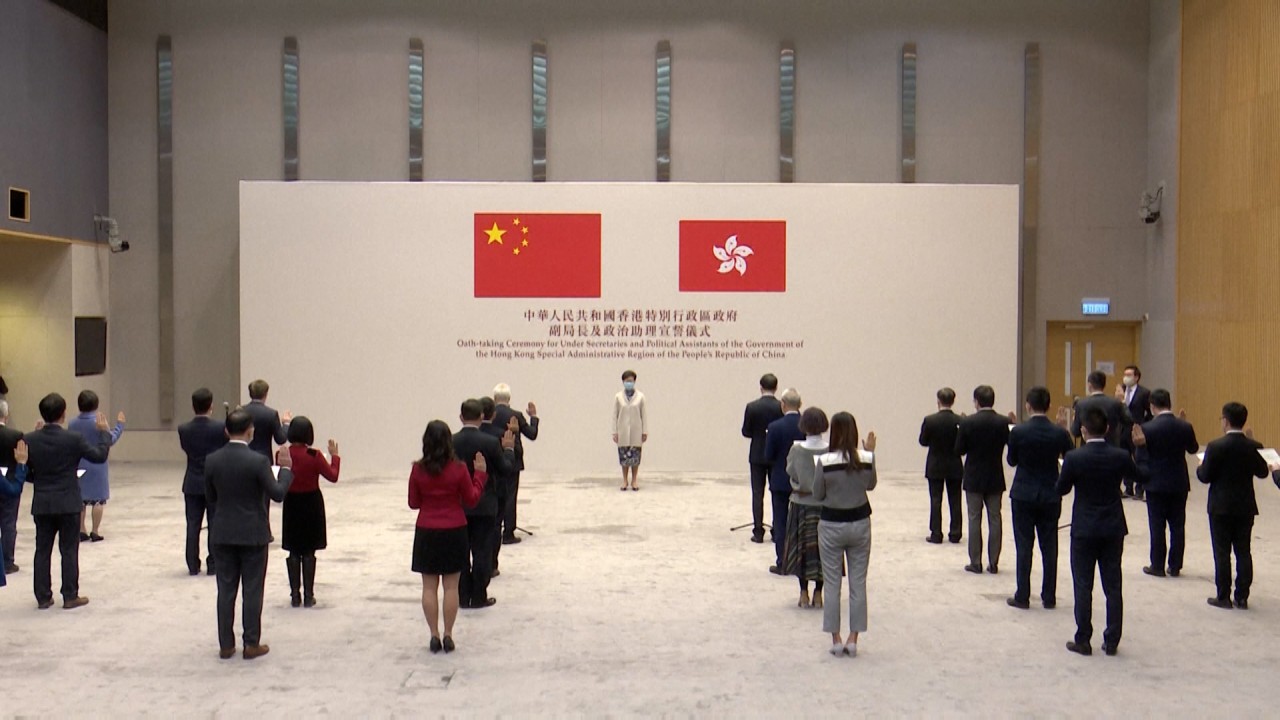
More Hong Kong opposition district councillors ousted after oath-taking ceremonies
- Former Democratic Party lawmaker Roy Kwong among 16 unseated by home affairs chief on Thursday
- Total number of municipal-level politicians removed for not being patriotic enough rises to 55
Another 16 opposition district councillors were unseated by Hong Kong’s home affairs chief on Thursday, bringing the total number of municipal-level politicians ousted to 55.
Among the latest to be disqualified over their oath-taking were seven Democratic Party members. They included former lawmaker Roy Kwong Chun-yu, Yuen Long District Council chairman Zachary Wong Wai-yin and Tsuen Wan District Council vice-chairman Li Hung-por.
Kwong, also a Yuen Long district councillor, was arrested under the national security law earlier this year for his involvement in the opposition camp’s primary poll last year.
A total of 47 former lawmakers and activists were charged with subversion over the unofficial run-off, but Kwong was not charged.

01:49
High-ranking officials take oath pledging loyalty to Hong Kong and the Basic Law
The city’s district councils, envisioned as advisory bodies for the government at the municipal level, became a stronghold for the opposition camp following a landslide win in the 2019 elections, which took place at the height of that year’s anti-government protests.
The opposition bloc won 392 of the 452 directly elected council seats across Hong Kong, giving them control of all but one of the city’s 18 districts.
But following Beijing’s imposition of the national security law in June 2020, the requirement for top officials, legislators and judges to pledge allegiance to the city was extended to ensure all public officers, including civil servants and district councillors, were sufficiently patriotic.
Some 260 opposition councillors resigned earlier this year after rumours circulated they would have to pay back their entire accrued salaries if ousted over their oaths, while others have been jailed or left Hong Kong altogether.
In four oath-taking sessions held from September 10 to October 8, all 208 remaining district councillors from across the political spectrum were invited to pledge their allegiance.
A total of 147, including at least 49 from the opposition bloc, had their oaths validated, while 55 were disqualified. That included 49 who had their oaths invalidated, and six who did not show up.
Five other opposition councillors did not attend their ceremony, but authorities have not said whether other arrangements would be made for them to take their oaths, or given any updates on their status.
In a statement issued on Thursday, the Home Affairs Bureau said that district councillors, who had their oaths validated, could still be unseated in the future if they engaged in unlawful acts.
“The oath-taking is legally binding,” the statement said. “The oath-taker must sincerely believe in and strictly abide by the relevant oath prescribed by law. An oath-taker who makes a false oath or who, after taking the oath, engages in conduct in breach of the oath shall bear legal responsibility in accordance with the law.”

